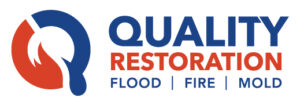Finding Success in Real Estate by Keeping it Simple
The success in renting your investment property, can depend on your commitment to keeping it simple. Every home and its rental agreement has a lot of factors and variables that you must manage. Many of these variables you can remove or mitigate in order to reduce complications and expenses. Keeping it simple means less work on your part and less problems that can arise. At the end of the video you will learn the investor’s secret for which type of rental you should buy in order to keep it simple.
First of all, not everything that wears out or breaks needs to be replaced. One example is a screen door. It’s nice for tenants to have but I find it is something that frequently breaks or wears out quickly, and it is not something that prospective tenants typically consider necessary in their search for a home. If you are in-between tenants and the screen door is showing signs of wear, just remove it and don’t replace it. Other similar examples include door handles on the fridge, curtains, reverse osmosis systems or water filters, and security systems. I recommend removing these items rather than replacing them. I find that neither having or NOT having any of these items affects your ability to get great tenants quickly.
Something that can save you a lot of money is to NOT provide a washer or dryer. More than half the time, renters already have their own, and if that is the case, you will have to deal with having yours removed and stored. If something IS provided when the tenant moves in, they may argue with you that they expect it to be replaced when it wears out because it was one of the things that “drew them to the house:” However, even if a tenant is living there and it breaks, you are not required to replace it if it doesn’t affect “safe and acceptable living conditions.” I highly recommend avoiding a potential argument by making the tenant aware from the beginning, and make it clear in the lease, that the washer and dryer will NOT be replaced or fixed if they break down and the tenant will be responsible to buy their own. However, kitchen appliances like the stove, oven, fridge, dishwasher, and a microwave, if it is built in, will be the owners responsibility to provide.
If you are looking to keep things simple and as complication-free as possible, it is best to avoid swamp coolers. I highly recommend only purchasing investment properties with central air or at least move towards switching it over to central air as soon as you can. Swamp coolers require another level of maintenance and potential risks that can cost a lot of money. It also affects how appealing your rental is for potential tenants.
Lawn care is something that can quickly cause headaches if it is not kept simple. Your tenants are unlikely to care for the yard in the same way that you would your own home and you certainly don’t want the expense of providing yard care for them. Avoid a lot of flower beds, shrubs, fruit trees or garden plots that will need pruning and weeding. Grass from house to curb is the best. If all a tenant needs to do is mow, then it will more likely get done and the yard will stay nice. Make sure that the lease agreement includes that tenant’s are responsible for lawn care. You will also find that most tenant’s don’t have a problem getting their own lawnmower and that is much better than the landlord providing it, servicing it, repairing it and inevitably replacing it.
In addition to providing tenants with only the basics, you will also want to incorporate some additional procedures and practices that will keep things simple and running smoothly.
For example, when carpet needs to be replaced or the walls need to be painted, evaluate whether it is time for other upgrades or repairs. In addition to paint and carpet, this can include updating fixtures, replacing baseboards, or taking care of minor wall repair. Often doing these things at the same time reduces labor cost and vacancy time. It’s easiest to schedule these to be done right after a tenant moves out. It is standard to include in the lease agreement that tenants give you a 30 day notice before moving, so if you call the needed service providers right away, this should give them enough time to schedule repairs for the day after the tenant moves out. For more details on saving money and keeping improvements simple, see our video, 10 Best Improvements to Make on a Rental Property. https://kasteelproperty.com/video-10-best-improvements-to-make-on-a-rental-property/
An excellent practice to keep it simple is to encourage your tenants to communicate with you via text or email, and then save those communications for future reference. This gives you a written history of what you have discussed so there are no misunderstandings. This practice has saved me a lot of trouble. When you can provide a tenant with proof of the exact details of your discussions, there is very little to argue about.
You can also avoid stressful arguments by keeping the lease agreement simple and straightforward. Avoid nit picking everything you want or do not want the tenant to do. For example, I often have owners that want to list specific things the tenant will be responsible for if they cause damage. For example: If they break a sprinkler head, a window, ruin the carpet, and such things. Rather, a lease can simply say that the tenant is responsible for any damages that they cause. One owner even wanted to require tenants to remove their shoes when entering the home. These kind of things can make it hard to enforce the lease and lead to unnecessary confusion and arguments. If your lease agreement is overly complicated and packed with every perceivable situation then a judge may frown on it when they are reviewing a conflict between you and your tenant. For specific wording and details it is best to consult with an attorney who is an expert in landlord/tenant law when writing your lease.
Above all, the best way to keep it simple is to find the right tenant. Proper screening that includes background, income, and credit checks will reduce the likelihood of problems down the road. To learn more on this subject see our video Top 7 Red Flags When Screening Tenants. See the link in the comments below. https://kasteelproperty.com/video-top-7-red-flags-to-watch-for-when-screening-tenants-for-rental-properties/
So what kind of rental property does a wise real estate investor buy in order to keep it simple? Usually condos and townhomes have less variables to deal with and provide a more stable investment. For more information on this see our video, What Type of Rental Property Should I Buy? A link is in the comments below. https://kasteelproperty.com/video-what-type-of-rental-property-should-i-buy/
If you found this video helpful please like it and subscribe. You can also find more short videos and helpful landlord tips by visiting our website www.kasteelproperty.com.
At Kasteel Property Management we do more than just watch your rental property. We protect it, cultivate it, and help your investment grow.



